Disc golf, similar to traditional golf, involves completing a course in the fewest throws using flying discs. The objective is to throw a disc into each hole.
Understanding the official rules, outlined in the PDGA Disc Golf Rules PDF, is essential for fair play and sportsmanship in both casual and competitive settings.
1.1 Overview of Disc Golf
Disc golf is a recreational and competitive outdoor sport played using flying discs. Similar to traditional golf, players aim to complete a course with the fewest throws. The sport emphasizes precision and skill, with courses typically featuring 9 or 18 holes. Governed by the PDGA, disc golf combines physical activity with mental strategy, making it accessible to players of all skill levels.
1.2 Importance of Understanding the Rules
Understanding the rules of disc golf is essential for ensuring fair play, sportsmanship, and enjoyable competition. The PDGA guidelines outline the framework for both casual and competitive games. Knowing the rules helps players avoid penalties, resolve disputes, and appreciate the game’s integrity. Familiarity with the Official Rules of Disc Golf enhances the experience for all participants.

Objective of the Game
The objective of disc golf is to complete each hole, and the entire course, in the fewest throws possible. Each hole requires landing the disc in a basket, with each throw and penalty counted as a stroke. The player with the lowest total strokes wins, as outlined in the PDGA rules.
2.1 Completing the Course in Fewest Throws
Players aim to complete each hole, and the entire course, with the fewest throws. Each throw and any penalties incurred are counted as strokes. The goal is to land the disc in the basket with the least number of throws, showcasing accuracy and strategy. The PDGA rules emphasize minimizing both throws and penalties to achieve the lowest score.
2.2 Comparison to Traditional Golf
Disc golf mirrors traditional golf in structure, with players aiming to complete each hole in the fewest strokes. However, instead of clubs and balls, disc golf uses flying discs aimed at baskets. The objective remains the same: achieve the lowest score by completing the course with minimal throws. PDGA rules ensure fair play and consistency across all levels of competition.

Basic Rules of Play
Disc golf rules ensure fair play and sportsmanship, following PDGA guidelines. Each throw counts as a stroke, with penalties for out-of-bounds or lost discs, emphasizing proper etiquette to maintain course integrity.
3.1 The Role of the PDGA
The Professional Disc Golf Association (PDGA) governs the sport, establishing official rules and regulations. It certifies courses, sanctions events, and maintains player standards. The PDGA ensures fair play and consistency across all levels of competition, from recreational to professional. Its guidelines, outlined in the Disc Golf Rules PDF, promote uniformity and sportsmanship, making it the authoritative source for the sport worldwide.
3.2 Course Setup and Structure
A disc golf course typically features 9 or 18 holes, each consisting of a tee area, fairway, and target, usually a metal basket or “pole hole.” The PDGA provides guidelines for course design, ensuring safety and challenging play. Natural obstacles like trees and terrain are often incorporated, with clearly marked boundaries and out-of-bounds areas defined in the Disc Golf Rules PDF.
3.3 Scoring and Winning the Game
Scoring in disc golf involves counting each throw until the disc lands in the target. Penalties, such as out-of-bounds throws, add strokes. The player with the lowest total strokes after completing all holes wins. The PDGA Disc Golf Rules PDF outlines specifics for tracking scores, handling penalties, and determining the winner, ensuring clarity and fairness in both casual and competitive play.
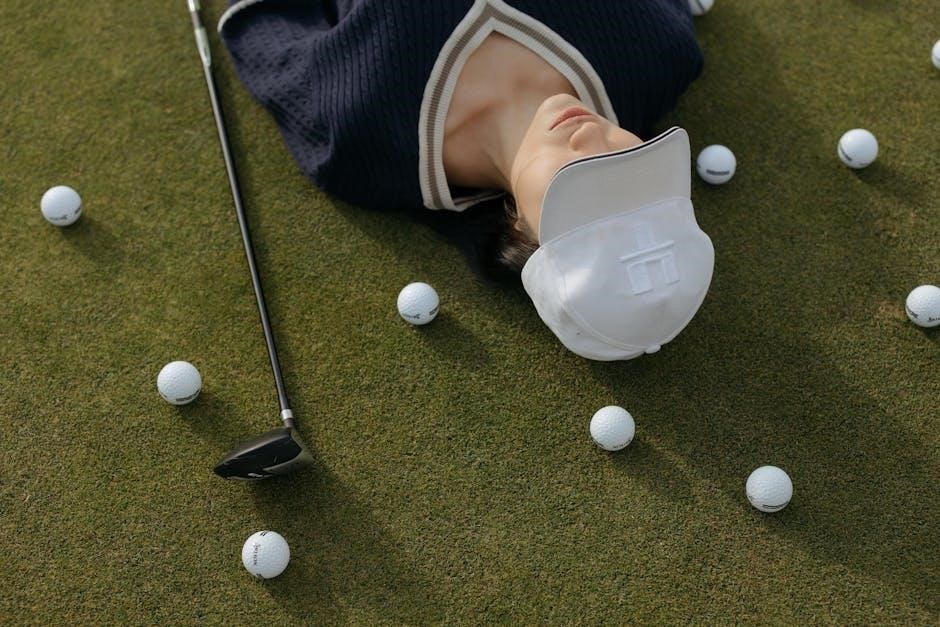
Player Conduct and Etiquette
Respect the course, others, and safety protocols. Players must not distract others during throws and should follow PDGA guidelines for fair and courteous play at all times.
4.1 General Etiquette Guidelines
Players must respect the course and others by following basic etiquette. Allow faster groups to play first, keep noise levels low, and avoid distractions during throws. Always let the disc land naturally and never intentionally interfere with another player’s shot. Maintain the environment by packing out trash and repairing divots. Fairness and courtesy are essential for enjoyable play.
4.2 Safety and Sportsmanship
Safety is a top priority in disc golf. Players must ensure their throws do not endanger others and yield to pedestrians or other groups. Always check surroundings before throwing and avoid distractions. Sportsmanship requires honesty, respect, and fair play. Players should call penalties on themselves and handle disputes calmly. If a disc hits someone, it is played where it lands without penalty. These practices ensure a positive experience for all.
Rules of the Course
Players must tee off within designated areas and maintain order of play. Discs must be played where they land unless rules allow otherwise. Follow PDGA guidelines for fair play.
5.1 Teeing Off and Order of Play
Teeing off begins within the designated area, following the order determined by the previous hole’s score or mutual agreement. Players take turns throwing, maintaining sequence to ensure smooth play. The first to tee off on a hole leads the next. Penalties may apply for violations, ensuring fairness and adherence to PDGA guidelines.
5.2 Playing the Disc Where It Lands
Players must play the disc where it lands, without altering its position. If the disc lands out-of-bounds or is lost, a penalty stroke and a drop are applied. The disc is played as it lies, ensuring fair play and adherence to PDGA guidelines, maintaining the integrity of the game and promoting sportsmanship.
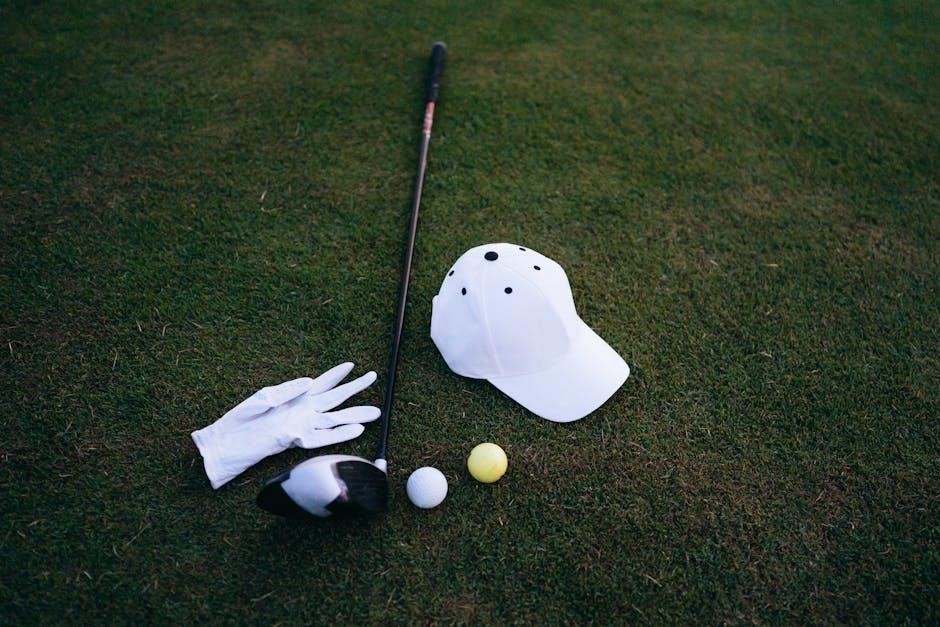
Scoring and Penalties
Scoring in disc golf is based on the number of throws per hole. Penalties are added for rule violations, such as out-of-bounds throws, per PDGA guidelines.
6.1 Counting Strokes and Penalties
Each throw is counted as a stroke, and penalties are added for rule violations. One-stroke penalties apply for out-of-bounds throws or lost discs. The PDGA guidelines ensure consistency in scoring, with penalties clearly defined to maintain fair play and accurate scorekeeping.
6.2 Handling Out-of-Bounds and Lost Discs
A disc is out-of-bounds if it lands beyond designated course boundaries or in areas marked as such. A one-stroke penalty is incurred, and the player must replay from the original position or a designated drop zone. Lost discs result in a penalty and require a re-throw from the last known position, adhering to PDGA guidelines for fair play.
Special Situations
Special situations, such as intentional deflections or inclement weather, are governed by specific PDGA rules to ensure fair play and safety. Proper handling of these scenarios is essential.
7.1 Intentional Deflections and Interference
Intentional deflections or interference with a thrown disc are penalized under PDGA rules. A disc deflected by another player or object must be played where it lands. Interference, such as catching or blocking a disc, results in a one-throw penalty and cancellation of the throw. Players must avoid actions that disrupt others or compromise fair play, ensuring a respectful and safe environment for all participants. Safety and sportsmanship are prioritized in such situations to maintain the integrity of the game.
7.2 Inclement Weather and Course Conditions
Inclement weather, such as heavy rain or strong winds, can impact play. The PDGA rules allow for stopping play if conditions are unsafe. Players must monitor weather and suspend play if lightning is present. Course conditions, like wet terrain, may require careful footing. The disc must be played where it lands, even in adverse conditions, unless ruled otherwise by officials. Safety and fair play remain priorities in all weather scenarios.
Tournament-Specific Rules
Tournament rules are detailed in the PDGA Competition Manual, outlining procedures for events. Local course rules may modify these for specific competitions, ensuring fair play and consistency across all players.
8.1 PDGA Competition Manual Overview
The PDGA Competition Manual provides standardized rules and procedures for disc golf events. It ensures fairness, consistency, and sportsmanship in tournaments. The manual covers player conduct, scoring, penalties, and course-specific regulations, serving as a comprehensive guide for both players and organizers. Updated annually, it aligns with the official rules of disc golf, ensuring a uniform approach to governance across all events.
8.2 Local Course Rules and Modifications
Local course rules may vary to accommodate specific site conditions or event requirements. These modifications are often outlined in the PDGA Disc Golf Rules PDF and must be approved by the tournament director. They ensure fair play by addressing unique challenges, such as out-of-bounds areas or mandatory paths. Players should familiarize themselves with these adjustments before gameplay to maintain compliance and sportsmanship.
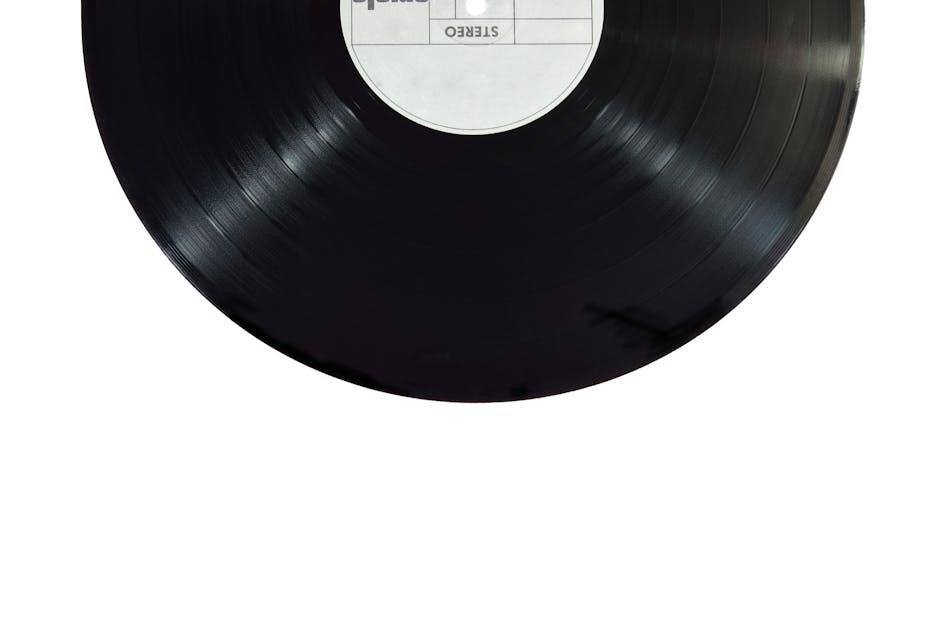
Equipment and Disc Standards
Disc golf equipment must meet PDGA standards for fairness and safety. Approved discs, including drivers, mid-range, and putters, are designed for specific throws. Baskets must meet PDGA specifications.
9.1 Approved Discs for Play
Approved discs for play must meet PDGA standards, ensuring fairness and consistency. Discs are classified by size, weight, and rim width, with specific regulations for drivers, mid-range, and putters. These standards guarantee uniform performance and prevent unfair advantages, maintaining the integrity of the game. Players can find approved discs through the PDGA Disc Golf Rules PDF and official retailers.
9.2 Baskets and Hole Equipment
Baskets, the primary target in disc golf, must meet PDGA specifications to ensure fair play. They typically consist of a metal frame, chains, and a basket-like structure. The equipment must be securely anchored to the ground to avoid movement during play. Non-standard baskets or modifications require PDGA approval to maintain consistency across courses and tournaments. Properly maintained baskets are essential for a fair and enjoyable game.
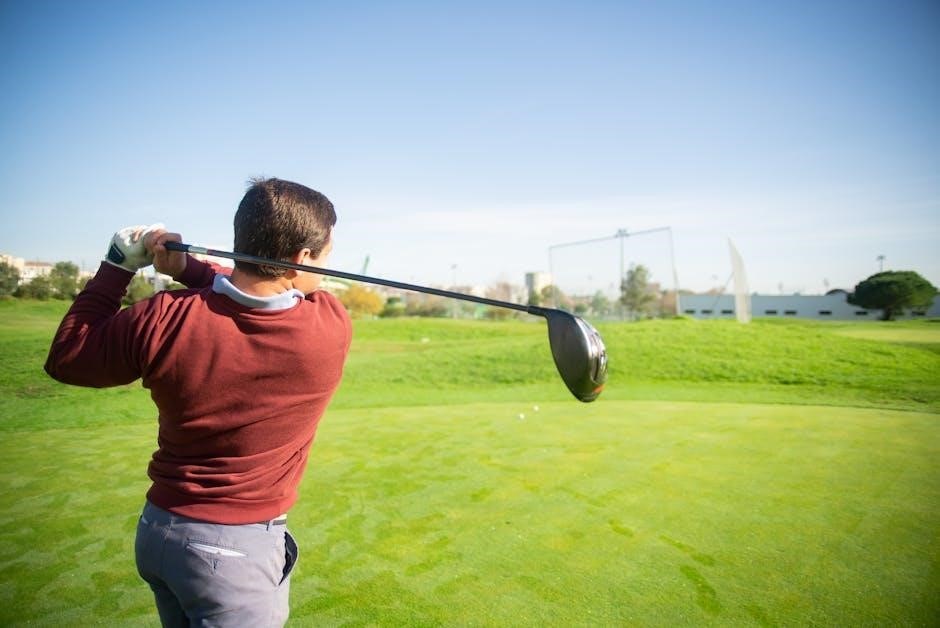
Etiquette and Community
Disc golf etiquette emphasizes respect for fellow players and the environment. Following PDGA guidelines ensures a positive experience for everyone. Teach others and promote fair play.
10.1 Respect for the Course and Others
Respect for the course involves maintaining the natural environment and avoiding damage. Players should also show courtesy to others by avoiding distractions and adhering to PDGA guidelines. Safety and sportsmanship are essential, ensuring a positive experience for all.
10.2 Promoting Fair Play
Promoting fair play involves adhering to PDGA guidelines and ensuring all players follow the rules. This includes not throwing until it’s safe and avoiding distractions. Penalties for rule violations help maintain fairness. Players should apply the rule that most directly addresses a situation, fostering a competitive yet respectful environment for everyone involved in the game.
Local Rules and Variations
Local rules adapt to specific course conditions, often differing from the PDGA Disc Golf Rules PDF. These variations may modify gameplay or penalties to suit unique course challenges, ensuring fair play while preserving the game’s integrity and enjoyment for all players.
11.1 Course-Specific Regulations
Course-specific rules adapt to unique terrain, hazards, or environmental concerns. These regulations, often detailed in the PDGA Disc Golf Rules PDF, may include out-of-bounds areas, mandatory paths, or special hole requirements. They ensure safety, preserve the environment, and maintain fair play, varying by course to address local challenges while adhering to the core principles of disc golf.
11.2 Adjustments for Recreational Play
For casual play, rules may be simplified to enhance enjoyment. Recreational adjustments, as outlined in the PDGA Disc Golf Rules PDF, often include relaxed penalties, shorter hole distances, or eliminating strict time limits. These modifications encourage accessibility and fun, allowing players of all skill levels to engage without the pressures of competitive settings while still maintaining the core spirit of the game.

Resources for Further Learning
The PDGA Disc Golf Rules PDF provides comprehensive guidance, while their official website offers tutorials, updates, and detailed rulebooks for players seeking in-depth knowledge and clarification.
12.1 The PDGA Rulebook
The PDGA Rulebook is the definitive guide for disc golf rules, updated annually to reflect the latest changes. It covers everything from basic gameplay to tournament-specific regulations, ensuring clarity and consistency.
Available as a downloadable PDF, the rulebook is a must-have for players and organizers alike, offering detailed explanations and examples to promote fair play and sportsmanship across all levels of competition.
12.2 Online Guides and Tutorials
Online guides and tutorials provide accessible resources for understanding disc golf rules. These materials, often complementing the PDGA Rulebook, offer detailed explanations, video examples, and practical advice for players of all skill levels.
They cover topics such as basic rules, etiquette, and advanced strategies, making them invaluable for both newcomers and experienced players seeking to refine their knowledge and improve their game.

Updates and Changes
The PDGA regularly updates disc golf rules to maintain fairness and adapt to the sport’s evolution. Players should review the latest PDF versions for rule changes and clarifications;
13.1 Recent Revisions to the Rules
The PDGA updated its official rules in 2025 to enhance clarity and fairness. Key revisions include adjustments to penalty procedures and out-of-bounds definitions. These changes, detailed in the latest Disc Golf Rules PDF, ensure consistent play across all levels. Players and organizers are encouraged to review the updated document to stay informed and adhere to the new guidelines.
13.2 Staying Informed About Rule Updates
Players can stay updated on rule changes by regularly checking the PDGA website and official publications. The Disc Golf Rules PDF is frequently updated to reflect the latest revisions. Subscribing to PDGA newsletters and following official social media channels ensures timely notifications. Additionally, attending local disc golf events or joining community forums can provide insights into new regulations and their practical applications.
Adhering to the official PDGA Disc Golf Rules PDF ensures fair play and sportsmanship, fostering a positive experience for all players; Respect the rules to enjoy the game responsibly.
14.1 Summary of Key Rules
The core of disc golf involves throwing a disc into each hole with the fewest strokes. Players must follow the PDGA Disc Golf Rules PDF, ensuring fair play and sportsmanship. Key rules include counting each throw, playing the disc where it lands, and applying penalties for out-of-bounds or lost discs. Respect for the course and others is essential for a positive experience.
14.2 Encouragement to Follow the Rules
Adhering to the official PDGA Disc Golf Rules PDF ensures fair play and sportsmanship. By following these guidelines, players maintain the integrity of the game, fostering a positive environment for all. Respect for the rules enhances the experience, promoting camaraderie and responsible play. Embrace the rules to enjoy disc golf responsibly and contribute to its growing community.
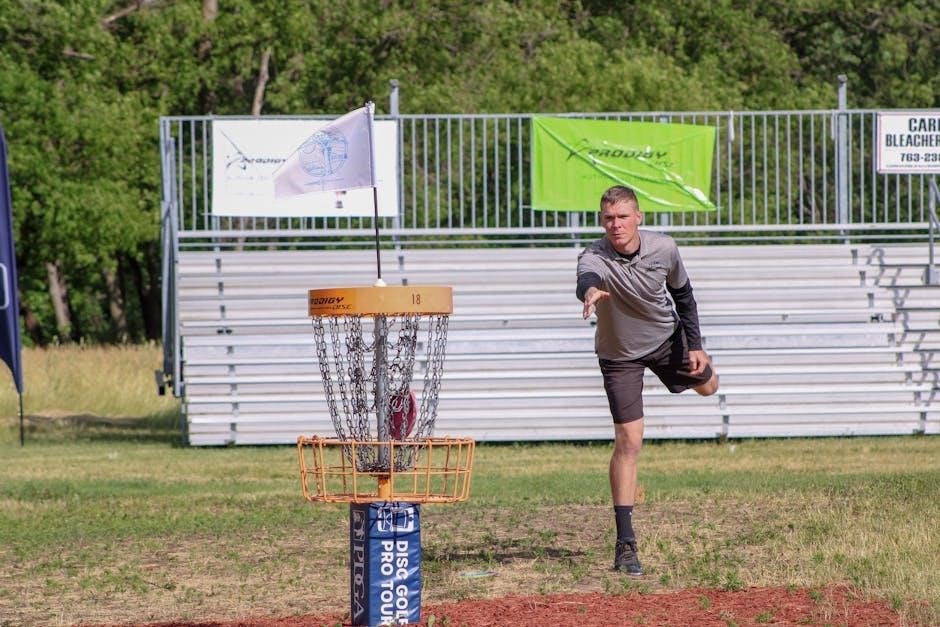
References
- PDGA Official Rules Document: The primary source for disc golf rules and regulations.
- Additional Resources: Online guides, tutorials, and community forums for further learning.
Visit PDGA.com for the official rulebook and supplementary materials.
15.1 PDGA Official Rules Document
Available as a downloadable PDF, it is a must-have resource for both casual and competitive play.
15.2 Additional Resources
Beyond the official PDGA Disc Golf Rules PDF, players can access online guides, tutorials, and course-specific materials. The PDGA Competition Manual offers detailed insights for competitive play. Websites like pdga.com provide updates, rule summaries, and community forums, ensuring comprehensive understanding of disc golf rules and best practices for players of all skill levels.
Final Thoughts
Adhering to the rules ensures a positive experience for all players. Respect the game, others, and the environment to enjoy disc golf responsibly and sustainably.
16.1 Importance of Adhering to Rules
Adhering to the rules ensures consistency and safety, fostering fair play and sportsmanship. Following the PDGA rules promotes respect for the game, others, and the environment, enhancing enjoyment for all players. By upholding these guidelines, disc golfers contribute to a positive and responsible community, ensuring the sport remains accessible and enjoyable for everyone involved.
16.2 Enjoying the Game Responsibly
Enjoying disc golf responsibly involves respecting the course, others, and the environment. Players should follow the PDGA rules to ensure fair play and safety. Protecting nature, avoiding litter, and minimizing disruption to wildlife are key; By being mindful of others and the surroundings, disc golfers can fully appreciate the game while preserving its accessibility for future generations.
